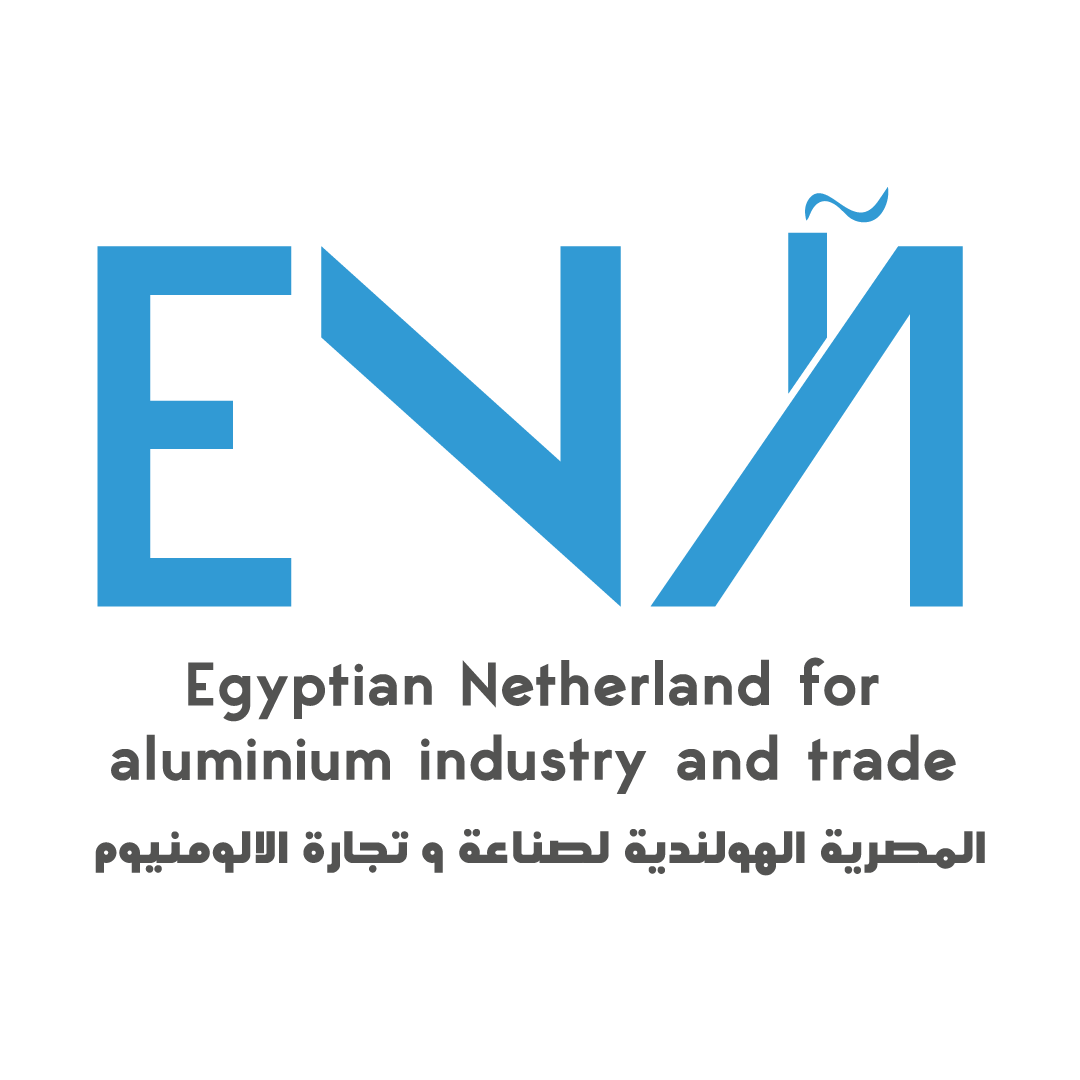Aluminum
Aluminum is today the most important industrially used metal after steel with the applications in almost all fields and all areas of everyday life due to its light-weight, high strength and recyclability.
Aluminum has been described as “the material of opportunity” and is the fastest growing metal today due to its unique combination of properties – high strength and low weight, good electrical and thermal conductivity, excellent formability, good resistance corrosion and attractive surface finish – which means it can be used practically in all design contexts and product applications.
Aluminum is extracted from its oxide “alumina” by the Hall-Heroult process in smelters. Alumina is extracted from bauxite by the Bayer process in Alumina refinery.
Aluminum can be recycled and used time and time again, whilst using only a fraction of the energy required for its primary production.
Advantages of Aluminium Extrusion : Aluminium extrusion is easier than welding. Construction companies prefer this for several reasons. It is economical as well as helps to fabricate parts with an invariable cross section. Aluminium is a good heat protector and the metal can be easily bonded with adhesive. And above all, aluminum extrusion machines are cost-effective to fit.
Advantages of Aluminium Extruded Products : The benefits of aluminum products are diverse.
- Light weight: The weight of aluminum is one-third of iron, steel, copper or brass. It is easier to carry and handle the metal.
- Strength: Aluminium products and aluminum extrusion profiles can be made as strong as needed.
- Strength and weight ratio: The united property of strength and lightness in aluminum extruded products makes it a key component of several industry based applications.
- Corrosion resistant: The metal has a natural protective coating against environmental, chemical and physical corrosive materials.
- Heat transmission: Aluminium is a better conductor of heat on a cost and weight basis.
- Electric transmission: Aluminium is a better conductor over copper per unit weight. It is commonly used for power consumption.
- Wide approval: Aluminium extruded products are largely used in the food packaging and chemical industry.
- Easy to manufacture: The metal, by using the conventional methods, can be given any shape.
- Easy for assembly design: Aluminium extruded products are easy for assembly design.
- Ability to join: Methods like welding, soldering, brazing are used to join extrusions.
- Superior quality: Aluminium extruded products guarantee trustworthiness and uniformity in quality.
- Cost-effectiveness: The tools used in extrusion process are comparatively cheaper in comparison to other production methods.
- Variety in finishing: Aluminium extruded products is known for their finishing varieties.
Aluminium alloys and tempers
Emirates Extrusion produces most of customer requirements in its facilities using alloys 6061 and 6063 with T4, T5 and T6 tempers.
6061 is a precipitation hardeningg aluminum alloy, containing magnesium and silicon as its major alloying elements. It has good mechanical properties and exhibits good weldability. It is one of the most common alloys of aluminum for general purpose use.
6063 is an aluminum alloy, with magnesium and silicon as the alloying elements. It has generally good mechanical properties and is heat treatable and weldable. 6063 is mostly used in extruded shapes for architecture, particularly window frames, door frames, and roofs. It is typically produced with very smooth surfaces fit for anodizing.
- T4 : Solution heat treated and naturally aged to substantially stable condition
- T5 : Cooled from an elevated temperature and then artificially age hardened
- T6 : Solution heat treated and artificially age hardened
Chemical Composition of Alloys 6063 and 6061, Tempers T5 & T6
| Designation | Alloy 6063 | Alloy 6061 |
| Magnesium (%Mg) | 0.45 – 0.90 | 0.80 – 1.20 |
| Silicon (%Si) | 0.20 – 0.60 | 0.40 – 0.80 |
| Chromium (%Cr) | 0.10 | 0.04 – 0.35 |
| Zinc (%Zn) | 0.10 | 0.25 |
| Iron (%Fe) | 0.35 | 0.70 |
| Cupper (%Cu) | 0.10 | 0.15 – 0.40 |
| Manganese (%Mn) | 0.10 | 0.15 |
| Titanium (%Ti) | 0.10 | 0.15 |
| Others | 0.05 | 0.05 |
| Aluminium | Remainder | Remainder |
Mechanical properties of Alloys 6063 and 6061, Tempers T5 & T6
| Alloy 6063 | Alloy 6061 | ||||
|---|---|---|---|---|---|
| T5 | T6 | T7 | T8 | ||
| Ultimate tensile strength | MPa | 150 | 185 | 190 | 280 |
| 0.2% proof stress | Mpa | 110 | 160 | 115 | 240 |
| Hardness brinell | BHN | 55 | 75 | 60 | 90 |
| Ultimate shear strength | Mpa | 155 | 205 | ||
| Elongation on 50 mm | % | 8 | 8 | ||
| Density | g/cm 3 | 2.7 | 2.7 | ||
| Melting range | Degree Celsius | 600 – 650 | 580 – 650 | ||
| Coefficient on linear expansion | x 10 3 /°C | 23 | 24 | ||
| Modulus of elasticity | Gpa | 67,000 | 69,000 | ||
| Fatigue strength (50*10 6 ) cycle | Mpa | 75 | 95 | ||


